Strona główna > Projekty > Zrealizowane > Monitoring funcjonowania cudzoziemców w Lublinie w sferze publicznej
HF (2013-11-28)
Surveillance of foreigners' performance in Lublin's public sector
Project's summary
The project's goal is to implement what we have learned during the surveillance of foreigners' participation in
Lublin's public sector. This has to be done in order to create a post of City Mayor's Proxy for Foreigners in Lublin,
whose role would be coordinating and overseeing integration of foreigners.
This project is the continuation of "Otwarty Lublin" (Open Lublin) project started in July 2010, which monitors the work of institutions, public and private offices frequented by foreigners living in Lublin.
Thanks to daily meetings with a big group of foreigners (with help from "Witamy w Lublinie" (Welcome to Lublin project) and organisations who offer them help, we'll be able to verify if those institutions function correctly.
The project will enable us to locate the most problematic issues and let us work towards the solution. Our priority is to protect life, health, well-being and other important issues that concern foreigners' stay in Poland.
The project is conducted as a part of Good Governance (Dobre rządzenie)
The project is being executed thanks to Stefan Batory Foundation (95 000 zł donation) and partially to European Fund for Integration of Third World Countries and the National Budget.
Premise
The main goal of the surveillance is to help the foreigners in Lublin integrate into Polish society.
In order to do that, we have to achieve the four following sub-goals:
1. Foreigners’ better understanding of their rights and duties in Poland
2. Verification of availability of public offices, forms and procedures necessary for foreigners' stay legalisation.
3. Eliminating acts of discrimination in life and death situations due to skin colour, origin, language, beliefs.
4. Reducing problems faced by foreigners living in Lublin in their daily lives.
5. Thinking up solutions to the issue of the integration of foreigners and proposing them to the City Council.
Of the utmost importance during the preparation of the project and giving the awards was experience the Homo Faber Association has gained during their work at "Welcome to Lublin" (Witamy w Lublinie). In the course of the project, Homo Faber Association tried to help integration by organising Polish lessons, trips and meetings as well as creating an info-desk and a web page. All that is supported by experienced members and workers of the Association, who participate in meetings, conferences and talks which tackle the issue of foreigner's integration.
It is important to note that the goal of the monitoring is not only to gather information but also to be able to exert influence on the problematic issues. An important feature of the monitoring programme is that the results are sent to the monitored institution first so they can start working on the potential changes and solutions.
Monitored institutions
During the monitoring, the following institutions will be put under surveillance:
Lublin's City Council.
- Voivodeship Council Info-Point
- Department of Transportation
- Bureau for Citizen Affairs
- City Council Department for Citizen Affairs
Voivoideship Council
- Voivodeship Council Department for Foreigners - obtaining the Residence Card
- Council Support Bureau - client support
- Safety and Emergency Management Department - concerning the operation of the Emergency Communication Centre (number 112)
Police Force
- Police Force Voivodeship Headquarters
- Police Force City Headquarters
Lublin Health Protection Fund
Job Office
Social Welfare Centre
Tax Office
Social Insurance Institution
Public Transport Board
- MPK
Papers
Below, we present books, papers and reports related to the monitoring of the integration of foreigners in Lublin which are available in our archives, as well as web pages if the publications are available in a digital form only.
Anchimowicz M., Muras K., Niziołek K., What we have in common and what makes us different. Białystok and it's citizens as seen by foreigners,Białystok 2008, HF/0168/K, HF/0169/K
Cudzoziemcy,[ed.:] J. Chlebny, Warsaw 2007, HF/0831/NS
Dać radę w Polsce - pakiet informacyjny dla cudzoziemców - obywateli Państw Trzecich,[ed.:] A. Mikulska,Helsinki
Foundation for Human Rights, HF/0462/I
Dąbrowski P., Cudzoziemiec niepożądany w polski prawie o cudzoziemcach, Warsaw 2011, HF/0664/NS
Golka M., Imiona wielokulturowości, Warsaw 2010, HF/0662/NS
Halik T., Kosowicz A., Marek A.,Imigranci w polskim społeczeństwie, Warsaw 2009, HF/0541/PC, HF/0519/NS
Integralnokulturowe badanie kontaktu kulturowego. Wybrane problemy społeczne i prawne, [ed.:] J. Królikowska,Warsaw
2009, HF/0832/NS
Janusz G., Ochrona praw mniejszości narodowych w Europie, Lublin 2011, HF/0646/NS, HF/0663/NS
Kaczmarczyk P., Migracje zagraniczne a procesy rynku pracy, przypadek Lubelszczyzny, Ośrodek badań nad Migracjami UW, Instytut Rynku Pracy – Fundacja Nowy Staw, Warszawa – Lublin 2008, HF/0149/NS
Kaźmierkiewicz P., Mazur-Rafał M., Iglicka K., Zarządzanie migracją. Przypadek i doświadczenia Polski w odniesieniu dyrektyw Komisji Europejskiej, Centrum Stosunków Międzynarodowych, Warsaw 2003, HF/0435/UE
Klaus W., Wencel K., Dyskryminacja cudzoziemców w Polsce. Diagnoza sytuacji, Analizy. Raporty. Ekspertyzy, nr 7/2008 (digital)
Klaus W,.Wencel K., Dyskryminacja cudzoziemców w Polsce w latach 2008 - 2010 (digital)
Kosowicz A., Marek A., Muzułmanie i uchodźcy w polskim społeczeństwie, Warsaw 2008, HF/0540/PC
Kozłowski H., Sękowska - Kozłowska K., Przeciwdziałanie dyskryminacji cudzoziemców - orzecznictwo sądów polskich oraz organów międzynarodowych 2010, Analyses. Expert reports, nr 5/2010 (digital)
Magala S. J., Kompetencje międzykulturowe, Warsaw 2011, HF/0666/PC
Migracja zarobkowa do Włoch. Próba podejścia interdyscyplinarnego,[eds.:] Bryk D., Rożnowski B., Zięba M. St., Lublin 2008, HF/0278/PC
Migracja (in Ukrainian), HF/0279/PC
Migracja – dodana wartość? (in Ukrainian), HF/0280/PC
Migracja zarobkowa do Włoch. Próba podejścia interdyscyplinarnego, [eds.:] Bryk D., Rożnowski B., Zięba M. St., Lublin 2008, HF/0278/PC
Migration – a challenge to the 21st Century, eds. Zięba M. St., Lublin 2008, HF/0281/PC
Migration – the value added?, [eds.:] Markowski K., Lublin 2008, HF/0282/PC
Mikulska A. Racism in Poland. Raport z badań wśród osób, które doświadczyły przemocy ze względu na swoje pochodzenie etniczne, rasowe lub narodowe, Warsaw 2010 digital: Helsinki Foundation for Human Rights, (www.prawaczlowieka.pl)
Poza systemem. Dostęp do ochrony zdrowia nieudokumetowanych migrantów i cudzoziemców ubiegających się o ochronę międzynarodową w Polsce, [eds.:] A. Chrzanowska, W Klaus. Warsaw 2001, HF/0639/PC (digital)
Praca cudzoziemców w Polsce. Aspekty prawne, podatkowe i ubezpieczeniowe, [ed.:] M. Jamroży, T. Major, Gdańsk 2012, HF/0667/NS, HF/0830/NS
Prawo cudzoziemców do edukacji w Polsce, [eds.:] Witold Klaus (digital)
Przyjazny urząd. Ewaluacja funkcjonowania Wydziału Spraw Cudzoziemców Mazowieckiego Urzędu Wojewódzkiego, [eds.:] Witold Klaus, Warsaw 2009 (digital)
Raport Eurostatu 2010 na temat cudzoziemców w Unii Europejskiej (digital)
Sąsiedzi czy intruzi? O dyskryminacji cudzoziemców w Polsce, [eds.:] Witold Klaus, Warsaw 2010 (digital)
Szklanna A., Ochrona prawna cudzoziemca w świetle orzecznictwa Europejskiego Trybunału Praw Człowieka, Warsaw
2010, HF/0663/PC
Wencel K., Prawa cudzoziemców w postępowaniu przed organami administracji publicznej, Analizy. Raporty. Ekspertyzy, nr 4/2009 (digital)
Zięba M. St., Migracja- wyzwanie XXI wieku, KUL, Lublin 2008, HF/0534/NS
Good practices
Below, we present the results of our search for places which offer foreigners help with integration.Places which offer help for foreigners in Voivodeship Council are specially marked.
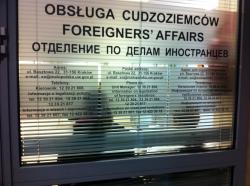 Oznaczenie miejsca obsługi cudzoziemców w krakowskim Urzędzie Wojewódzkim.
Oznaczenie miejsca obsługi cudzoziemców w krakowskim Urzędzie Wojewódzkim.
Fot. Piotr Skrzypczak
Więcej fotek w galerii
Bulletin board in the Cracow Voivoidship Council.
• Cracow. Voivodeship Council. The board contains information about offices where foreigners can find help (in English and Polish).
• We focused on checking the availability of e-services for foreigners. We inspected web pages of the following cities: Arnhem, Lisbon, Barcelona, Rome, Berlin, Paris, Brussels, Vienna, Vilnius, Bratislava, Amsterdam, Stockholm and even New York and Washington D.C. The best one turned out to be that of Prague (www.praha.eu). The web pages of Arnhem (www.arnhem.nl), Brussels and Amsterdam were also very well received.
Partners and networks
Homo Faber Association works together with many organisations dealing with human rights or, in this case,
integration of foreigners. The Association is also a member of several networks dealing with this topic.
• Lubelska Regionala Sieć Wsparcia Imigrantów Fundacji na rzecz Państwa Prawa
• Cooperation with Stowarzyszenie Promocji Wielokulturowości Interkulturalni.pl
• Cooperation with Stowarzyszenie dla Ziemi
• Koalicja na rzecz Równych Szans Polskiego Towarzystwa Prawa Antydyskryminacyjnego
• Program "Study in Lublin" realizowany przez Wydział Strategii i Obsługi Inwestorów Urzędu Miasta Lublin
• Fundacja Inna Przestrzeń
The team
The surveillance is conducted by Piotr Skrzypczak and Kinga Kulik.
The project is supported by Monika Gwiazda, Katarzyna Lalak, Blanka Gwiazda.
Komentarze
HF (2013-11-28)
Surveillance of foreigners' performance in Lublin's public sector
Project's summary
The project's goal is to implement what we have learned during the surveillance of foreigners' participation in
Lublin's public sector. This has to be done in order to create a post of City Mayor's Proxy for Foreigners in Lublin,
whose role would be coordinating and overseeing integration of foreigners.
This project is the continuation of "Otwarty Lublin" (Open Lublin) project started in July 2010, which monitors the work of institutions, public and private offices frequented by foreigners living in Lublin.
Thanks to daily meetings with a big group of foreigners (with help from "Witamy w Lublinie" (Welcome to Lublin project) and organisations who offer them help, we'll be able to verify if those institutions function correctly.
The project will enable us to locate the most problematic issues and let us work towards the solution. Our priority is to protect life, health, well-being and other important issues that concern foreigners' stay in Poland.
The project is conducted as a part of Good Governance (Dobre rządzenie)
The project is being executed thanks to Stefan Batory Foundation (95 000 zł donation) and partially to European Fund for Integration of Third World Countries and the National Budget.
Premise
The main goal of the surveillance is to help the foreigners in Lublin integrate into Polish society.
In order to do that, we have to achieve the four following sub-goals:
1. Foreigners’ better understanding of their rights and duties in Poland
2. Verification of availability of public offices, forms and procedures necessary for foreigners' stay legalisation.
3. Eliminating acts of discrimination in life and death situations due to skin colour, origin, language, beliefs.
4. Reducing problems faced by foreigners living in Lublin in their daily lives.
5. Thinking up solutions to the issue of the integration of foreigners and proposing them to the City Council.
Of the utmost importance during the preparation of the project and giving the awards was experience the Homo Faber Association has gained during their work at "Welcome to Lublin" (Witamy w Lublinie). In the course of the project, Homo Faber Association tried to help integration by organising Polish lessons, trips and meetings as well as creating an info-desk and a web page. All that is supported by experienced members and workers of the Association, who participate in meetings, conferences and talks which tackle the issue of foreigner's integration.
It is important to note that the goal of the monitoring is not only to gather information but also to be able to exert influence on the problematic issues. An important feature of the monitoring programme is that the results are sent to the monitored institution first so they can start working on the potential changes and solutions.
Monitored institutions
During the monitoring, the following institutions will be put under surveillance:
Lublin's City Council.
- Voivodeship Council Info-Point
- Department of Transportation
- Bureau for Citizen Affairs
- City Council Department for Citizen Affairs
Voivoideship Council
- Voivodeship Council Department for Foreigners - obtaining the Residence Card
- Council Support Bureau - client support
- Safety and Emergency Management Department - concerning the operation of the Emergency Communication Centre (number 112)
Police Force
- Police Force Voivodeship Headquarters
- Police Force City Headquarters
Lublin Health Protection Fund
Job Office
Social Welfare Centre
Tax Office
Social Insurance Institution
Public Transport Board
- MPK
Papers
Below, we present books, papers and reports related to the monitoring of the integration of foreigners in Lublin which are available in our archives, as well as web pages if the publications are available in a digital form only.
Anchimowicz M., Muras K., Niziołek K., What we have in common and what makes us different. Białystok and it's citizens as seen by foreigners,Białystok 2008, HF/0168/K, HF/0169/K
Cudzoziemcy,[ed.:] J. Chlebny, Warsaw 2007, HF/0831/NS
Dać radę w Polsce - pakiet informacyjny dla cudzoziemców - obywateli Państw Trzecich,[ed.:] A. Mikulska,Helsinki
Foundation for Human Rights, HF/0462/I
Dąbrowski P., Cudzoziemiec niepożądany w polski prawie o cudzoziemcach, Warsaw 2011, HF/0664/NS
Golka M., Imiona wielokulturowości, Warsaw 2010, HF/0662/NS
Halik T., Kosowicz A., Marek A.,Imigranci w polskim społeczeństwie, Warsaw 2009, HF/0541/PC, HF/0519/NS
Integralnokulturowe badanie kontaktu kulturowego. Wybrane problemy społeczne i prawne, [ed.:] J. Królikowska,Warsaw
2009, HF/0832/NS
Janusz G., Ochrona praw mniejszości narodowych w Europie, Lublin 2011, HF/0646/NS, HF/0663/NS
Kaczmarczyk P., Migracje zagraniczne a procesy rynku pracy, przypadek Lubelszczyzny, Ośrodek badań nad Migracjami UW, Instytut Rynku Pracy – Fundacja Nowy Staw, Warszawa – Lublin 2008, HF/0149/NS
Kaźmierkiewicz P., Mazur-Rafał M., Iglicka K., Zarządzanie migracją. Przypadek i doświadczenia Polski w odniesieniu dyrektyw Komisji Europejskiej, Centrum Stosunków Międzynarodowych, Warsaw 2003, HF/0435/UE
Klaus W., Wencel K., Dyskryminacja cudzoziemców w Polsce. Diagnoza sytuacji, Analizy. Raporty. Ekspertyzy, nr 7/2008 (digital)
Klaus W,.Wencel K., Dyskryminacja cudzoziemców w Polsce w latach 2008 - 2010 (digital)
Kosowicz A., Marek A., Muzułmanie i uchodźcy w polskim społeczeństwie, Warsaw 2008, HF/0540/PC
Kozłowski H., Sękowska - Kozłowska K., Przeciwdziałanie dyskryminacji cudzoziemców - orzecznictwo sądów polskich oraz organów międzynarodowych 2010, Analyses. Expert reports, nr 5/2010 (digital)
Magala S. J., Kompetencje międzykulturowe, Warsaw 2011, HF/0666/PC
Migracja zarobkowa do Włoch. Próba podejścia interdyscyplinarnego,[eds.:] Bryk D., Rożnowski B., Zięba M. St., Lublin 2008, HF/0278/PC
Migracja (in Ukrainian), HF/0279/PC
Migracja – dodana wartość? (in Ukrainian), HF/0280/PC
Migracja zarobkowa do Włoch. Próba podejścia interdyscyplinarnego, [eds.:] Bryk D., Rożnowski B., Zięba M. St., Lublin 2008, HF/0278/PC
Migration – a challenge to the 21st Century, eds. Zięba M. St., Lublin 2008, HF/0281/PC
Migration – the value added?, [eds.:] Markowski K., Lublin 2008, HF/0282/PC
Mikulska A. Racism in Poland. Raport z badań wśród osób, które doświadczyły przemocy ze względu na swoje pochodzenie etniczne, rasowe lub narodowe, Warsaw 2010 digital: Helsinki Foundation for Human Rights, (www.prawaczlowieka.pl)
Poza systemem. Dostęp do ochrony zdrowia nieudokumetowanych migrantów i cudzoziemców ubiegających się o ochronę międzynarodową w Polsce, [eds.:] A. Chrzanowska, W Klaus. Warsaw 2001, HF/0639/PC (digital)
Praca cudzoziemców w Polsce. Aspekty prawne, podatkowe i ubezpieczeniowe, [ed.:] M. Jamroży, T. Major, Gdańsk 2012, HF/0667/NS, HF/0830/NS
Prawo cudzoziemców do edukacji w Polsce, [eds.:] Witold Klaus (digital)
Przyjazny urząd. Ewaluacja funkcjonowania Wydziału Spraw Cudzoziemców Mazowieckiego Urzędu Wojewódzkiego, [eds.:] Witold Klaus, Warsaw 2009 (digital)
Raport Eurostatu 2010 na temat cudzoziemców w Unii Europejskiej (digital)
Sąsiedzi czy intruzi? O dyskryminacji cudzoziemców w Polsce, [eds.:] Witold Klaus, Warsaw 2010 (digital)
Szklanna A., Ochrona prawna cudzoziemca w świetle orzecznictwa Europejskiego Trybunału Praw Człowieka, Warsaw
2010, HF/0663/PC
Wencel K., Prawa cudzoziemców w postępowaniu przed organami administracji publicznej, Analizy. Raporty. Ekspertyzy, nr 4/2009 (digital)
Zięba M. St., Migracja- wyzwanie XXI wieku, KUL, Lublin 2008, HF/0534/NS
Good practices
Below, we present the results of our search for places which offer foreigners help with integration.Places which offer help for foreigners in Voivodeship Council are specially marked.
 Oznaczenie miejsca obsługi cudzoziemców w krakowskim Urzędzie Wojewódzkim.
Oznaczenie miejsca obsługi cudzoziemców w krakowskim Urzędzie Wojewódzkim.Fot. Piotr Skrzypczak
Więcej fotek w galerii
Bulletin board in the Cracow Voivoidship Council.
• Cracow. Voivodeship Council. The board contains information about offices where foreigners can find help (in English and Polish).
• We focused on checking the availability of e-services for foreigners. We inspected web pages of the following cities: Arnhem, Lisbon, Barcelona, Rome, Berlin, Paris, Brussels, Vienna, Vilnius, Bratislava, Amsterdam, Stockholm and even New York and Washington D.C. The best one turned out to be that of Prague (www.praha.eu). The web pages of Arnhem (www.arnhem.nl), Brussels and Amsterdam were also very well received.
Partners and networks
Homo Faber Association works together with many organisations dealing with human rights or, in this case,
integration of foreigners. The Association is also a member of several networks dealing with this topic.
• Lubelska Regionala Sieć Wsparcia Imigrantów Fundacji na rzecz Państwa Prawa
• Cooperation with Stowarzyszenie Promocji Wielokulturowości Interkulturalni.pl
• Cooperation with Stowarzyszenie dla Ziemi
• Koalicja na rzecz Równych Szans Polskiego Towarzystwa Prawa Antydyskryminacyjnego
• Program "Study in Lublin" realizowany przez Wydział Strategii i Obsługi Inwestorów Urzędu Miasta Lublin
• Fundacja Inna Przestrzeń
The team
The surveillance is conducted by Piotr Skrzypczak and Kinga Kulik.
The project is supported by Monika Gwiazda, Katarzyna Lalak, Blanka Gwiazda.
Komentarze
- Brak komentarzy




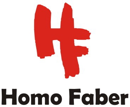

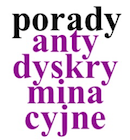
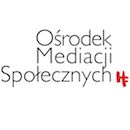
 Jeśli chcesz być informowany/a na bieżąco o wydarzeniach prosto z Homo Faber, zapisz się do naszego newslettera.
Jeśli chcesz być informowany/a na bieżąco o wydarzeniach prosto z Homo Faber, zapisz się do naszego newslettera.




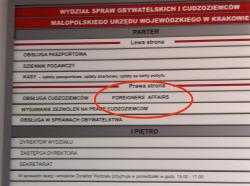

 Portal na którym w tej chwili znajdujesz się został wykonany dzięki dotacji Unii Europejskiej - Środki Przejściowe 2005 (TF2005/017-488.01.01.01) - w ramach projektu Akademia Obywatelska IV realizowanego w roku 2008. Portal, Akademia HF oraz pismo Opornik są jego kontynuacją.
Portal na którym w tej chwili znajdujesz się został wykonany dzięki dotacji Unii Europejskiej - Środki Przejściowe 2005 (TF2005/017-488.01.01.01) - w ramach projektu Akademia Obywatelska IV realizowanego w roku 2008. Portal, Akademia HF oraz pismo Opornik są jego kontynuacją.